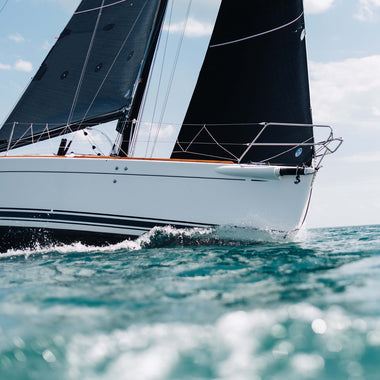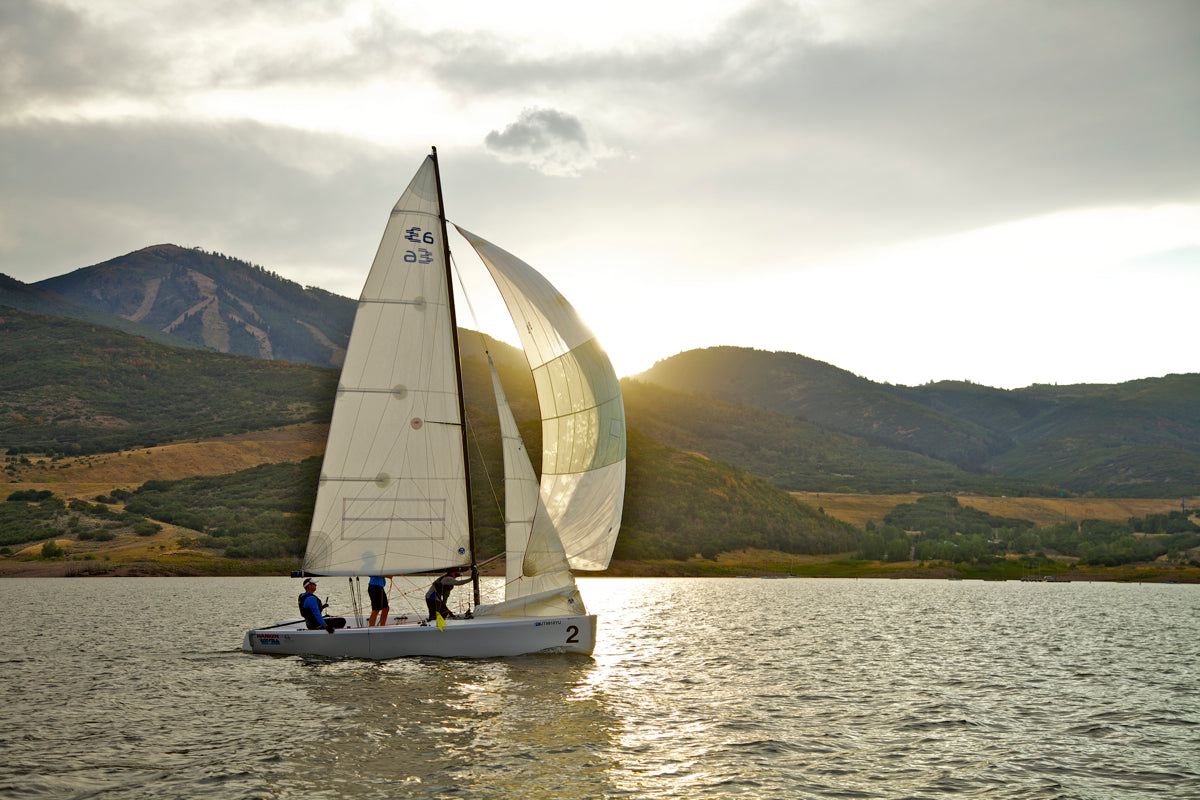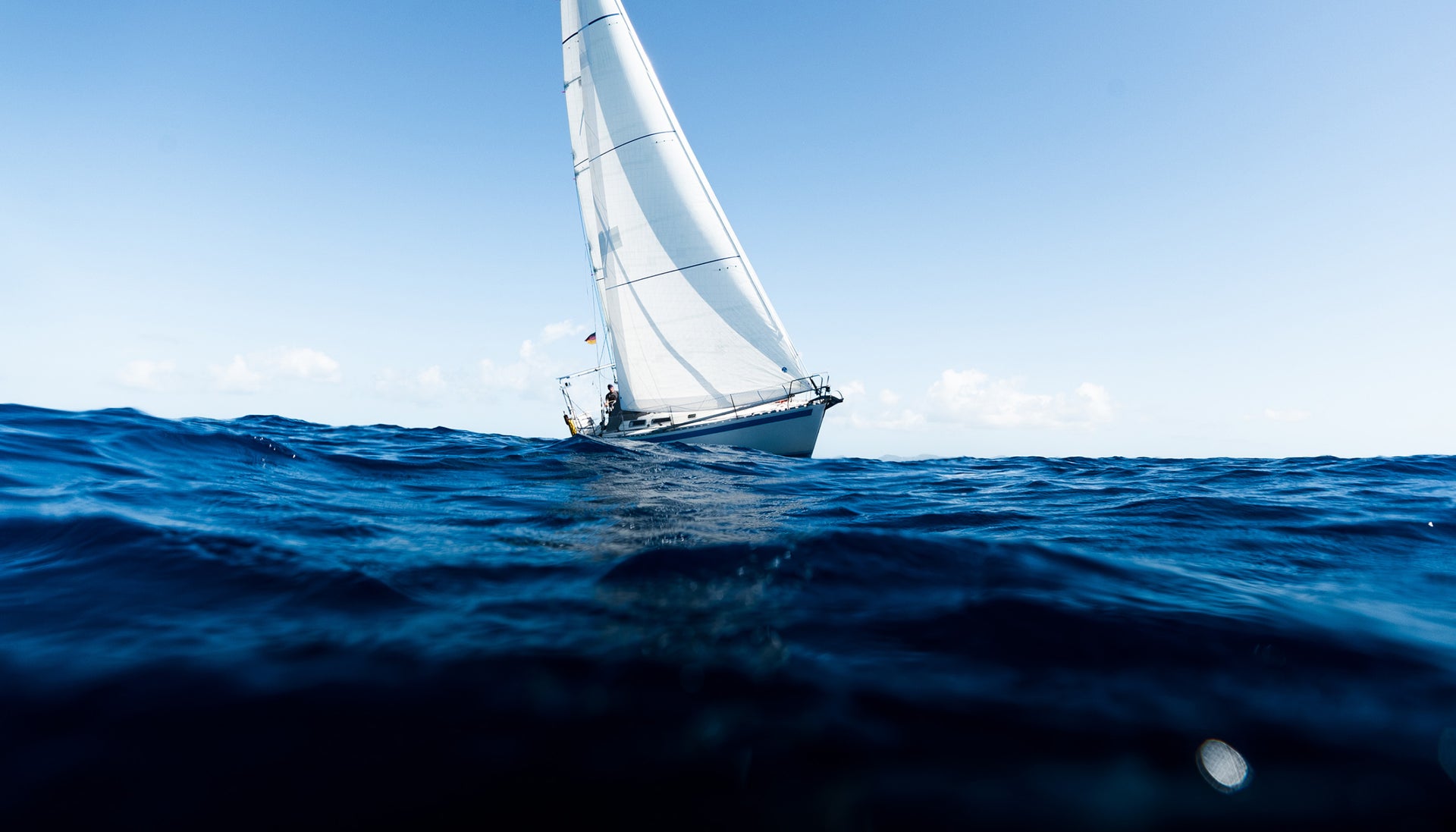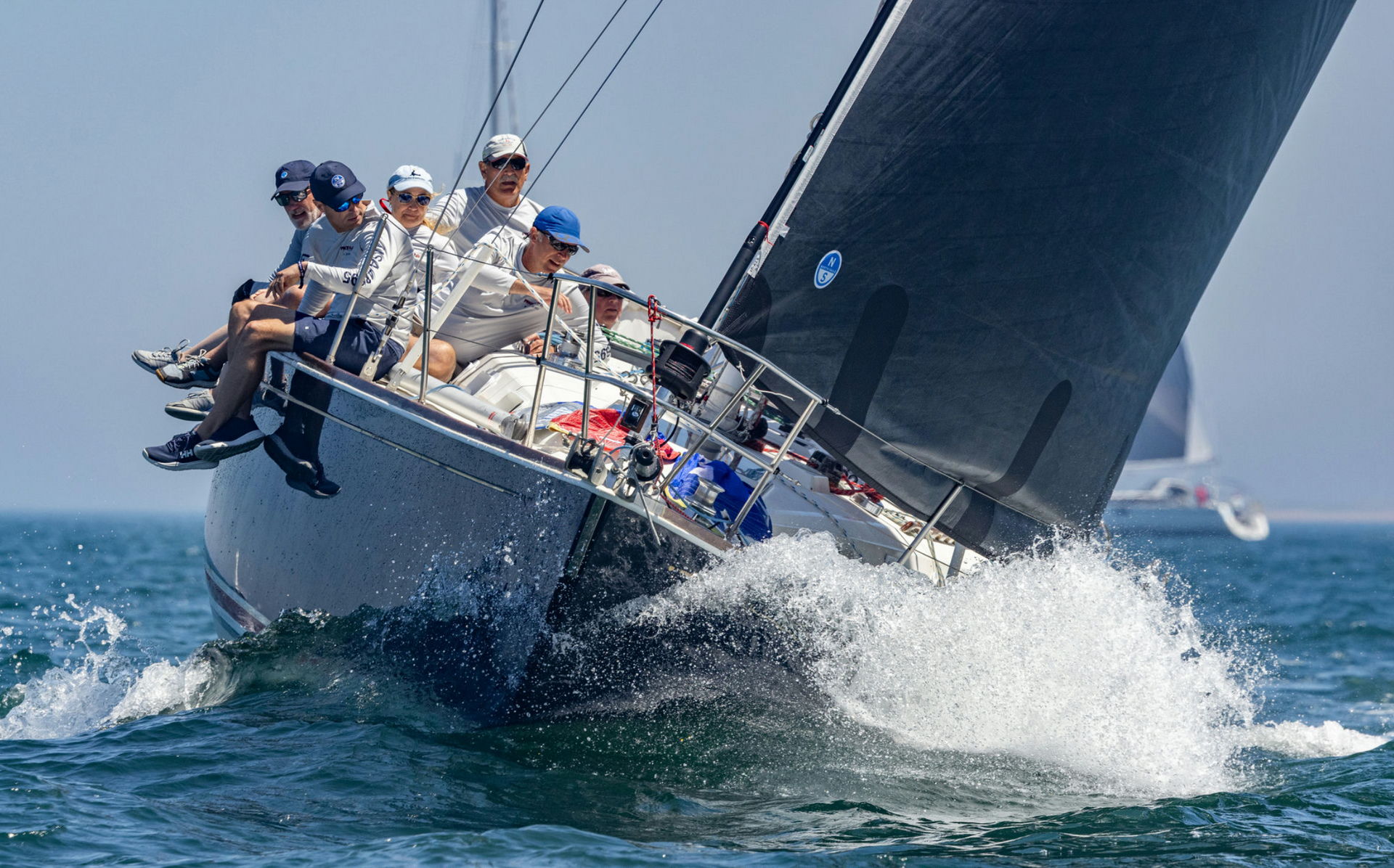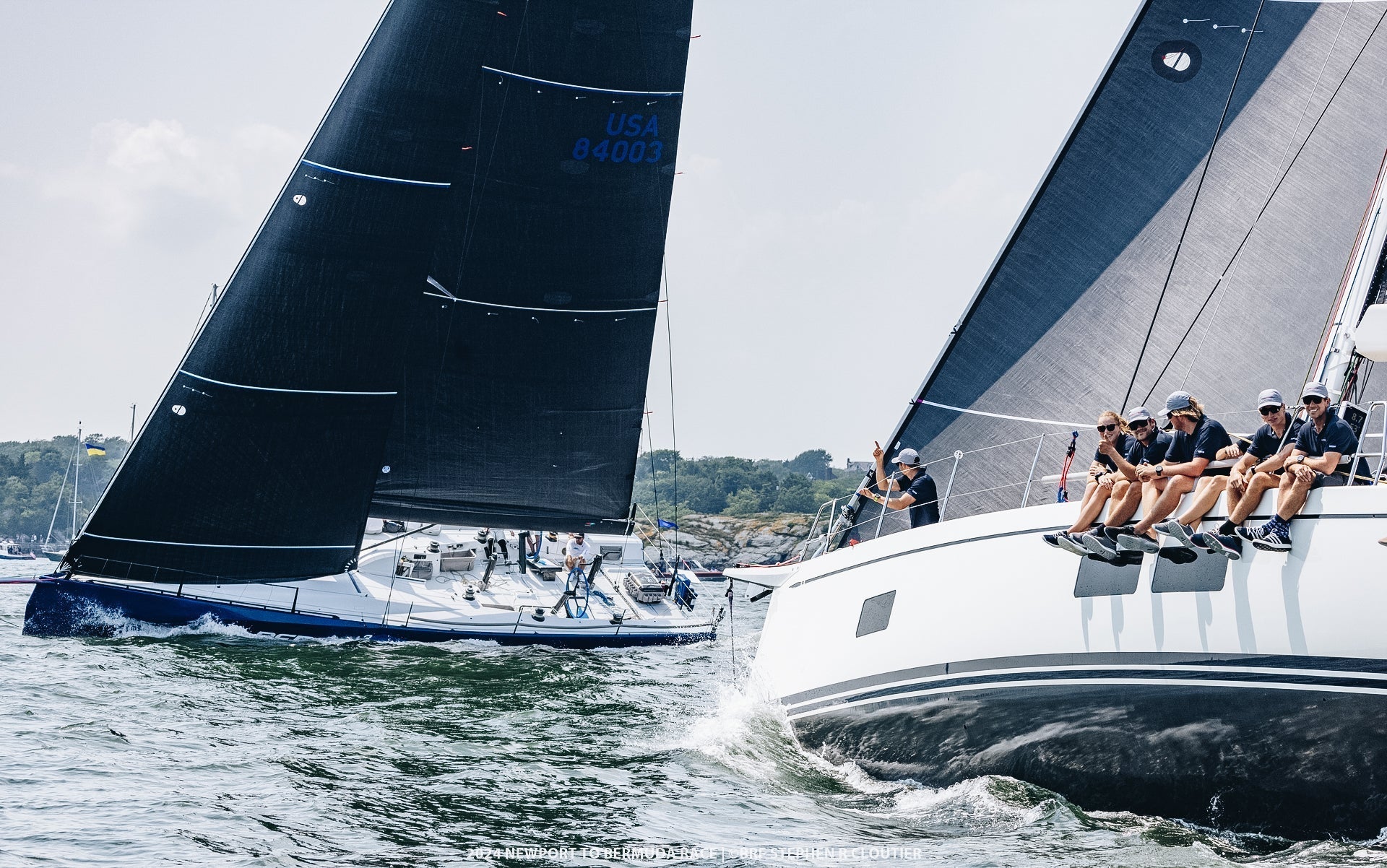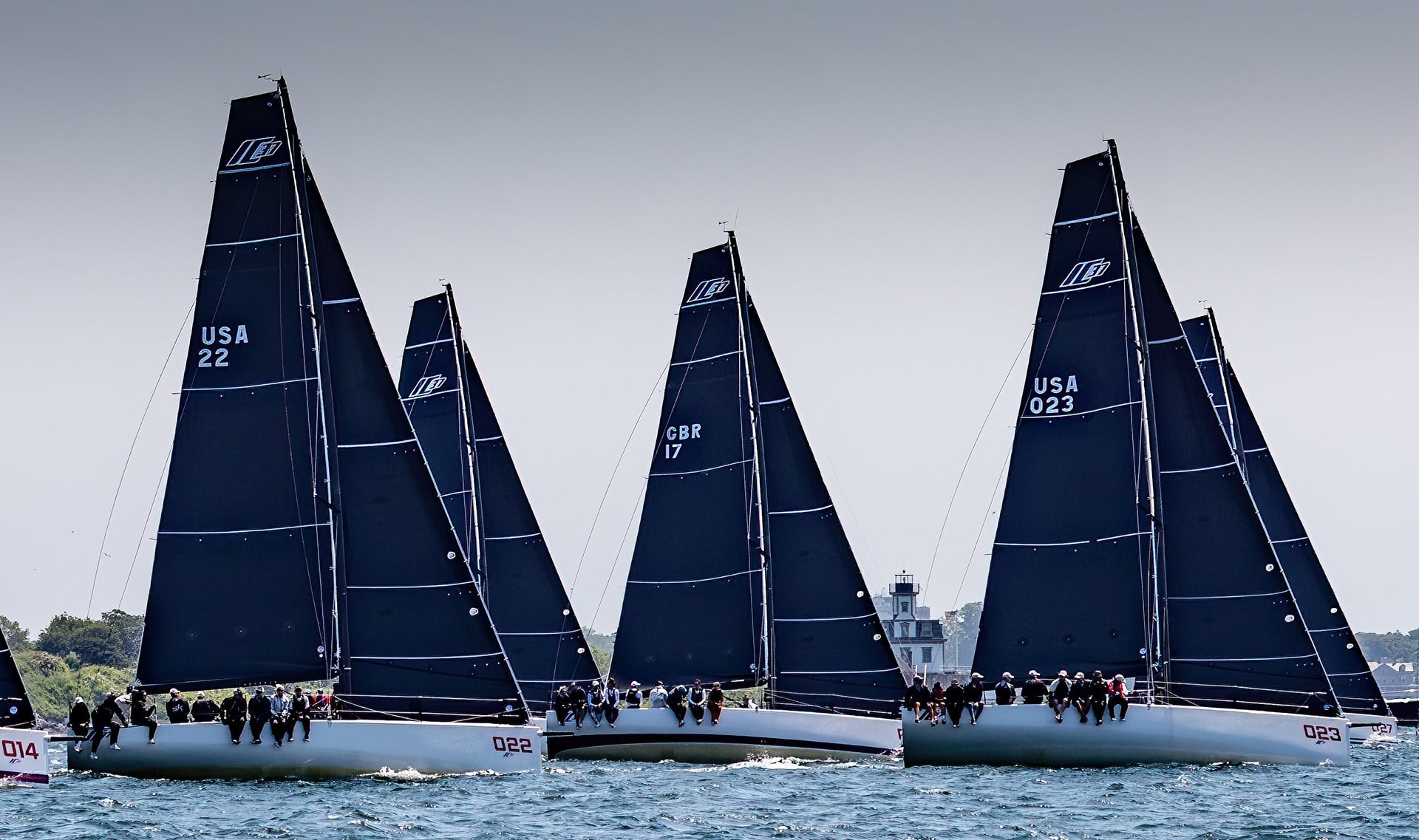SPOTLIGHT ON PARK CITY SAILING
SPOTLIGHT ON PARK CITY SAILING
At Park City Sailing, an Empty Boat is a Wasted Opportunity

In the Wasatch Mountain Range, the team at Park City Sailing has created a sailing haven, where people from all backgrounds, in all stages of life, have experiences and make memories on the water that stretch beyond the sport.
Park City generally brings to mind winter Olympic games, extreme snow sports, and high-end resorts, but nestled under the slopes of Deer Valley Ski Resort is the Jordanelle Reservoir, 6,200 feet above sea-level where Executive Director Scott VerMerris conducts socially impactful sailing programs from May to October. VerMerris studied human development and family studies and has an extensive background in alternative forms of education and therapy.
The adaptive program accommodates people of all abilities, adapting their fleet to handle sailors with visual impairment, amputation, cognition, autism, muscular dystrophy, cerebral palsy, hearing impairment among others.
Similarly, the therapeutic program is a space for those whose impairments may not be visible to those around them. Park City Sailing is an innovator in the utilization of mindfulness as a component of the sailing experience. Participants include veterans with post-traumatic stress disorder and traumatic brain injury, struggling with addiction, children, and families supporting a family member with mental or chronic illness.
The program is a recipient of the Robbie Pierce Award for outstanding adaptive programming.
The idea began with Ken Block, former Vice President director of Park City Sailing. Block is retired now, but his passion for the programs is still a major part of his life, and he is involved with countless organizations that promote accessibility in sailing.
Block did not enter the sport of sailing in a typical way. He did not come from a family of sailors, but he knew he had an emotional connection to the sport, so he worked his way onto several Swans competing offshore and eventually he campaigned 3 International Etchells.
Initially, Park City Sailing started as a Tuesday night around-the-cans Laser sailing, but with Block’s passion, it grew into the program it is today. A turning point was when the SEAS program in Sheboygan put out a notice that they were looking to donate their fleet of eight Elliot 6 Meters. Park City Sailing worked very hard to get the boats, calling upon now retired North Sails expert Tom McLaughlin to help them close the deal. McLaughlin was one of the program’s first and best volunteers.
“It’s a very positive experience,” says McLaughlin. “We did a lot of sailing with wounded warriors, special needs people of all ages, people with learning disabilities, and so on. To really see their sort of joy or freedom when they’re on the water was really heartening because a lot of these people were beaten down, or told they can’t do things. We put them behind the tiller and encouraged them, ‘you can do this!'” He continues, “the beauty of being on a big open lake is that you chart your own course. You go where you want to go. You don’t have to stay on a path, there is symbolic freedom in that.”

“Our way of introducing the boats to the community was a partnership with the National Ability Center based in Park City,” says Block. “They brought 24 wounded women warriors, to our program and we took them out sailing. The impact on us was palpable, that while sailing is a lot more than taking two turns off the lower to see if we can get a little more power to go through the lump on the next beat. We actually made a difference in people’s lives.”
Park City Sailing continued to strengthen its relationship with The National Ability Center to create their own programs. Those programs have grown into the current work done at Park City Sailing. The program works with groups and individuals, like Big Brother, Big Sister, to specific requests, like one terminal patient named George, whose final wish was to go sailing one last time.
When sailors ask about the program, Block says, “There’s a reason why you’re still sailing after 30, 40, in my case, 60 years.” And it’s not, ‘Hey, how can I induce a little bit more prebend today?’ No, that’s not what it’s all about. Something happened the first time you got on a sailboat that made you continue to get on a sailboat decade after decade.”
The stories that Scott VerMerris and Ken Block share about the sailors in the program are hopeful, powerful stories about inclusivity and the positive effect that participation in sport and being outside can have on our lives. One participant, Dani, had recently lost her husband to suicide when she went on the water with Park City Sailing. Dani started to open herself up to share her story and talk to others about her experience.
Another sailor, Sarah, was in a mountain bike crash that left her paralyzed. After the accident, she felt hopeless but learning to sail made her feel proud to be disabled.
“I always have this limiting thing going on in my head and can’t fully have fun. For the first time, I completely let everything go and I was so happy and laughing and cackling and having the time of my life,” said Sarah of the experience.
Another is Shane, an improvised explosive device specialist in Afghanistan who was suffering from severe anxiety and PTSD, who shared after a day on the water, “Today, I found a place where I feel safe.” Now, Shane continues his recovery and has gone back to school to become a recreational therapist himself.
These benefits have strong enough data behind them that Block and VerMerris have co-authored two scientific papers on their experiences under the guidance of Dr. William Marchand of the Salt Lake VA hospital. on their experiences. They encourage other programs to expand their horizons to work with a more diverse audience.
VerMerris says, “We can all benefit from good mental health, and sailing can contribute to well being. We’ve become fascinated with the effects that combining mindfulness, meditation, being outdoors, learning about sailing, a new skill that involves physics, and nature, and science, and all these different things, as well as comradery, can treat post-traumatic stress disorder.”
“The more you spend time in a cockpit of a J/22 with three or four people in recovery, you’re like, “Wow, these are amazing stories,” says Block.

Tom McLaughlin, who was hired by Lowell North in 1967, and has been involved with countless high-performance programs, attests that his hours spend volunteering with Park City Sailing strengthened his love of the sport. “I will reach out and I’ll help others because it not only is it rewarding, but it regenerates your love for sailing. And I think no matter how good of a sailor you are, even on the professional level, if you don’t really love it, you’re not going to do it as well.
“When you sail, like for an America’s Cup program and you’re working six and a half days a week, and your focus is on incremental improvement. It’s easy to lose sight of the original joy that brought you into it. Volunteerism is something that allows you to work with people that have never been exposed to sailing or are struggling with real-life problems, and to see them leave those problems onshore and have some real joy, that takes the competitor and harkens back to that happy place. That gets you through another week of the grind of going out and sail testing and boat testing.”
Block makes himself a resource for those who want to share their time on the water, and encourages people in the sport to lean-in to adaptive inclusivity, even if they might feel uncomfortable at first.
VerMerris adds, “I think that’s why any member joins. It’s so that they can escape the stresses of whatever lives onshore and get out on the water as we all do. Our program also focuses specifically on how we can use our boats to offer people experiences that have different physical abilities, or different cognitive abilities, or the two combined.”
The team attests that starting a socially-impactful sailing program begins locally, partnering with groups like adaptive sports centers, any therapeutic treatment center, or their local VA.
“Be fearless in reaching out to the community,” says Block.
Sending instructors to US Sailing’s adaptive sailing course adds to their confidence levels. Block raises his hand to speak at as many events as he can, and also offers his personal cell phone number up as a resource (you can email us for it.)
The work done at Park City Sailing is proof that sailing is good for our well-being, giving participants transferable skills that relate when you get home and the stresses of real life. No matter the walk of life, we can all benefit from more time spent under sail.
